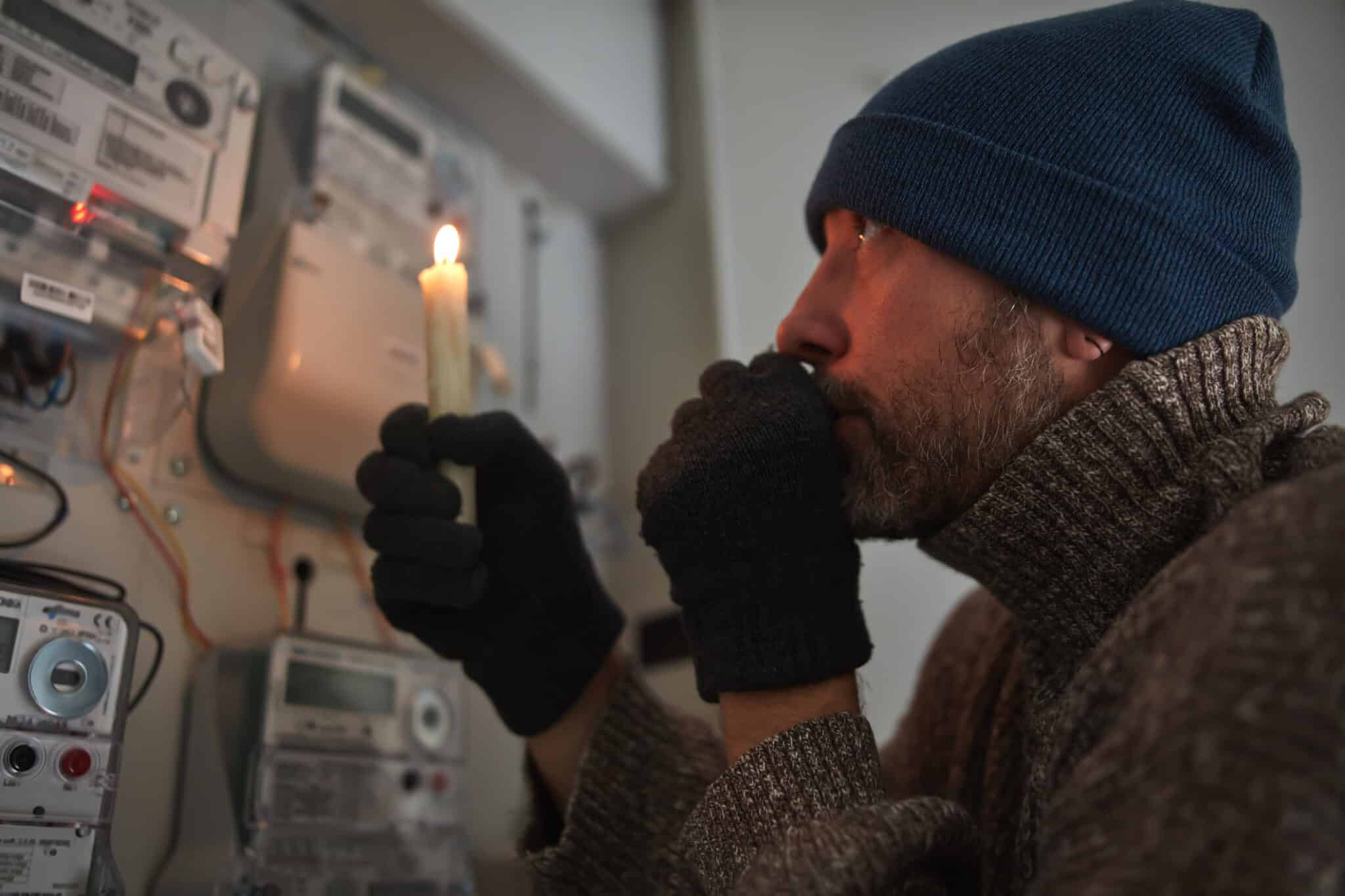Electrical Safety Tips – Winter is cozy, but it can also bring some tricky challenges for your home’s electrical system. With heaters working overtime, holiday lights twinkling, and outdoor outlets exposed to snow and ice, following electrical safety tips is more important than ever.
No one wants to deal with tripped circuits, electrical fires, or a sudden power outage when it’s freezing outside. Luckily, a few winter electrical safety tips can help you avoid those headaches and keep everything running smoothly.
Let’s explore how these essential electrical safety tips can ensure a safe, comfortable, and stress-free winter season for your home in Lancaster, PA!

Why Winter Electrical Safety Matters
Winter might bring snow and festive cheer, but it can also introduce electrical risks that many homeowners in Lancaster, PA aren’t fully prepared for.
With increased demand on your home’s electrical system—from heating devices to holiday decorations—issues like overloaded circuits or faulty wiring become more likely. Taking the time to understand these risks helps prevent accidents, keeps your family safe, and avoids costly repairs.
Common Electrical Hazards in Winter
Winter weather creates unique challenges for electrical safety. Here are some of the most common hazards you may face:
- Overloaded circuits: Heaters, electric blankets, and additional appliances can draw too much power and trip breakers.
- Damaged cords and outlets: Worn-out cords on decorations or space heaters can spark and cause fires.
- Moisture near outlets: Snow and ice can make their way into outdoor outlets, increasing the chance of short circuits or shocks.
- Power outages: Sudden outages from winter storms can leave you relying on backup power sources like generators, which need to be handled with care.
Wintertime is all about keeping warm and festive, but without proper care, these activities can turn into risks that disrupt your peace of mind.
Importance of Preventative Electrical Safety
The best way to avoid problems is to stay ahead of them with a little preparation. Preventative safety can mean everything from checking cords for frays before using appliances to scheduling a quick inspection of your electrical panel.
Small steps like these reduce the chance of fires or electrical failures. It’s also important to keep extension cords and heaters away from areas where people might trip over them.
Inspect and Maintain Heating Devices
Check Space Heaters Before Use
Before using a space heater, inspect it thoroughly for signs of wear, such as cracked plugs, exposed wires, or unusual noises. Place heaters on flat, stable surfaces away from flammable items like curtains or bedding to minimize fire risks.
Models with built-in safety features, like tip-over switches or automatic shut-offs, offer extra protection. Heaters should never be left unattended, especially while sleeping or when leaving the house. If a heater shows signs of malfunction, it’s best to replace it immediately to avoid accidents.
Don’t Overload Circuits with Heating Devices
Heating devices consume a lot of energy, so plugging too many into a single outlet can easily overload your home’s electrical circuits. Overloaded circuits not only trip breakers but also pose a serious fire risk if the wiring overheats.
Always distribute heating appliances across multiple outlets to balance the load and reduce strain on the system. Avoid using power strips or extension cords with space heaters, as they are not designed to handle the high current these devices require.
Regularly check your home’s circuit breakers and consult an electrician if you notice frequent tripping or other electrical issues.
Safe Use of Holiday Lights and Decorations
Inspect Lights for Damage
Inspecting lights for cracked bulbs, frayed cords, or loose connections is one of the most essential electrical safety tips for the holidays. Damaged decorations should be repaired or replaced immediately to prevent hazards.
Use energy-efficient LED lights, as they produce less heat and lower the risk of overheating. Be sure to plug lights into outlets with ground fault circuit interrupters (GFCIs) to protect your home from electrical shocks.
Following these electrical safety tips will help you safely illuminate your home throughout the holiday season.
Turn Off Decorations Overnight or When Not at Home
One of the most overlooked electrical safety tips is remembering to turn off holiday lights before going to bed or leaving the house. Lights that run for extended periods, especially unattended, are more likely to overheat or cause a short circuit.
Set a timer to control when lights turn on and off, ensuring they don’t run longer than necessary. This small adjustment not only reduces fire risks but also helps lower your energy bills during the season. Sticking to these electrical safety tips keeps your home safe while still spreading holiday cheer.
Electrical Safety with Outdoor Power Sources
Protect Outdoor Outlets from Moisture
Moisture is one of the biggest threats to outdoor outlets during the winter, and protecting them is a top priority in any list of electrical safety tips. Use weatherproof outlet covers to shield the outlets from snow, rain, or ice buildup.
Be sure that any outdoor electrical connections are plugged into GFCI-protected outlets, which will cut power if moisture is detected. Avoid using damaged or cracked outlet covers, as they can allow moisture to seep in and cause electrical problems.
Following these electrical safety tips ensures that outdoor outlets remain safe throughout the season.
Handle Extension Cords Safely
Handling outdoor extension cords correctly is an important part of electrical safety tips, especially when they are exposed to snow or ice. Make sure the cords are rated for outdoor use to prevent damage from extreme temperatures.
Keep cords elevated off the ground to avoid water pooling around the connections, which could create a shock hazard. Never run extension cords through doorways or windows, as this can pinch the cord and lead to fraying or short circuits.
Regularly inspect outdoor cords for signs of wear and replace any that show damage. Following these electrical safety tips ensures that outdoor cords remain reliable and safe all season.
Avoid Overloading Circuits
Spread Devices Across Multiple Outlets
One of the simplest electrical safety tips to prevent overloading is distributing devices across multiple outlets instead of relying on just one. Plugging multiple high-energy devices, like space heaters and electric blankets, into the same outlet can quickly overwork the circuit.
Use different outlets in various rooms to reduce the load on any single circuit. If you find that certain areas in your home have limited outlets, consider hiring an electrician to install additional ones.
Spreading devices around the house according to these electrical safety tips keeps circuits from becoming overworked and reduces the chance of electrical failure.
Recognize the Signs of Overloaded Circuits
Being aware of overloaded circuit symptoms is one of the most valuable electrical safety tips for homeowners. Signs include flickering lights, buzzing sounds from outlets, or warm wall plates near electrical sources.
Tripped breakers are another clear indicator that a circuit is overloaded and needs immediate attention. Ignoring these warning signs can lead to overheating wires, which is a major fire hazard.
If you notice these issues frequently, following electrical safety tips like unplugging devices or calling an electrician for inspection can help resolve the problem before it becomes dangerous.
Prepare for Winter Power Outages
Use Generators Safely
Generators are a reliable way to restore power during an outage, but using them correctly is vital for safety. Always place generators outdoors, far away from windows or vents, to prevent carbon monoxide from entering your home.
Never plug a generator directly into a wall outlet, as this can cause backfeeding, which poses a risk to utility workers.
Use heavy-duty outdoor-rated extension cords to connect appliances to the generator safely. Stick to these electrical safety tips to ensure your generator runs smoothly and without danger.
Stock Up on Battery-Powered Lighting
Having battery-powered lighting ready is one of the smartest electrical safety tips for winter outages. Keep flashlights and extra batteries in an easy-to-access spot, so you’re prepared when the power goes out unexpectedly.
Battery-operated lanterns are a safer option than candles, which can become a fire hazard. Make sure everyone in the household knows where to find these items to avoid panic during an outage. Following these electrical safety tips ensures that you’re ready to handle winter power outages calmly and safely.
Maintain Electrical Panels and Breakers
Check Circuit Breakers Regularly
One of the most important electrical safety tips is to check your circuit breakers regularly, especially during the winter. Flip each breaker on and off occasionally to make sure they are functioning properly.
If you notice that certain breakers are frequently tripping, it may indicate a problem with the wiring or that a circuit is being overloaded.
It’s also a good idea to label your breaker box clearly, so you know which switches control specific areas of your home. Taking the time to monitor your breakers ensures that small issues don’t turn into major problems.
Call an Electrician for Inspection if Needed
If your electrical panel is outdated or if breakers continue to trip frequently, it’s wise to call a professional electrician for an inspection. Professional electricians can identify potential issues, such as faulty wiring or circuits that can’t handle modern electrical loads.
This is one of the most crucial electrical safety tips since it ensures your panel is operating efficiently and safely. A quick inspection now can save you from larger problems, like power outages or electrical fires, later in the season. Taking these proactive steps will help you rest easy knowing your home’s electrical system is winter-ready.
Protecting Your Home from Electrical Fires
Install and Test Smoke Alarms and Carbon Monoxide Detectors
Installing smoke alarms and carbon monoxide detectors is one of the best ways to protect your home. Ensure detectors are placed in key areas, such as near bedrooms and on each floor.
Test these devices monthly to confirm they’re working properly, and replace batteries at least once a year. Carbon monoxide detectors are especially important if you use gas-powered appliances or generators. These small devices offer life-saving protection by alerting you to potential hazards before they escalate.
Keep Fire Extinguishers Accessible
Having fire extinguishers within easy reach is an important precaution. Place them in high-risk areas, such as the kitchen, garage, and near heating devices. Make sure every family member knows how to use an extinguisher correctly in case of an emergency.
Regularly check the pressure gauge to ensure the extinguishers are charged and ready to use. Quick access to a working extinguisher can make all the difference in minimizing the damage from an electrical fire.
Educate Family Members on Electrical Safety
Teach Kids About Safe Appliance Use
Kids are naturally curious, so it’s important to teach them how to interact safely with electrical devices. Explain the dangers of pulling on cords, plugging in too many devices, or playing near outlets.
Make sure they know not to use appliances like space heaters or electric blankets without adult supervision.
Encourage them to ask for help if they notice anything unusual, like a sparking outlet or a warm plug. Educating children early helps them develop good habits that prevent electrical accidents.
Create a Family Safety Plan for Power Outages
A power outage can be stressful, but having a family plan makes it easier to manage. Make sure everyone knows where to find emergency items, such as flashlights, batteries, and chargers.
Assign responsibilities, like checking on younger siblings or pets during an outage. Go over basic safety rules, such as avoiding downed power lines and handling generators carefully. A well-practiced plan ensures that your family stays safe and calm, even during unexpected blackouts.
When to Call a Professional Electrician
Signs You Shouldn’t Ignore
There are some key warning signs that signal it’s time to bring in an electrician. Flickering lights, outlets that feel warm to the touch, or buzzing sounds from your breaker box indicate potential electrical issues.
Frequently tripping breakers, burning smells near appliances, or sparks from outlets are also serious concerns. Even if everything seems to be working, these signs shouldn’t be ignored, as they may point to hidden hazards. Calling an electrician as soon as you notice these issues can help you avoid bigger problems, such as electrical fires.
Hiring the Right Electrician in Lancaster
Finding the right electrician in Lancaster, PA ensures your home gets the care it needs. Look for professional professionals with good local reviews and experience handling residential electrical systems.
Ask about their availability for emergency services, especially during the winter months when issues can’t wait. It’s also helpful to choose someone who offers inspections and maintenance plans, so you can keep your system in top shape year-round.
A trusted electrician will not only resolve current issues but also give you peace of mind moving forward.
Stay Safe This Winter with Help from Mister Sparky of Lancaster!
Don’t let winter’s electrical challenges put your home at risk—our expert team at Mister Sparky of Lancaster is here to help with all your electrical needs. From overloaded circuits to proper generator use, we’ll ensure your home stays safe and secure.
Our professional electricians provide thorough inspections and can guide you with personalized electrical safety tips specific to your home.
If you’re in Lancaster, PA, contact us today and take the first step toward a worry-free winter with expert advice and reliable service.

Electrical Safety FAQS
How can I tell if my space heater is safe to use?
A key part of electrical safety tips is checking your space heater for wear and tear before using it. Look for damaged cords, broken plugs, or odd smells while it’s running, which may signal a problem. Ensuring the heater has automatic shut-off and tip-over protection provides extra peace of mind during use.
Can I use indoor extension cords outside during winter?
One of the most important electrical safety tips is to never use indoor extension cords outside, as they can’t handle extreme temperatures or moisture. Outdoor-rated cords are built to prevent short circuits and shocks even in snow or rain. Always store extension cords properly to avoid damage and keep them reliable for future use.
What should I do if my breaker keeps tripping?
Following electrical safety tips means understanding that tripped breakers are often a sign of overloaded circuits or faulty wiring. Start by unplugging some devices from the affected area to ease the load. If the problem persists, call a professional electrician to inspect your system and ensure your home is safe.
How often should I test my smoke alarms and CO detectors?
Regularly testing smoke alarms and CO detectors is a simple but essential electrical safety tip. You should test both devices monthly and replace batteries every six months to ensure they stay functional. Remember, replacing the entire unit every 10 years ensures long-term safety and reliability.
Is it safe to leave holiday lights on overnight?
Among the top electrical safety tips is turning off holiday lights when you go to sleep or leave home. Lights left on for extended periods can overheat, creating a fire hazard. Using a timer ensures your decorations stay festive while also saving energy and keeping your home safe.






